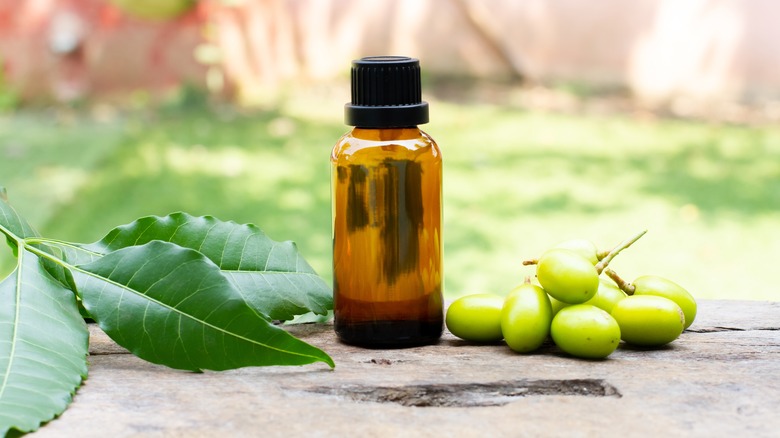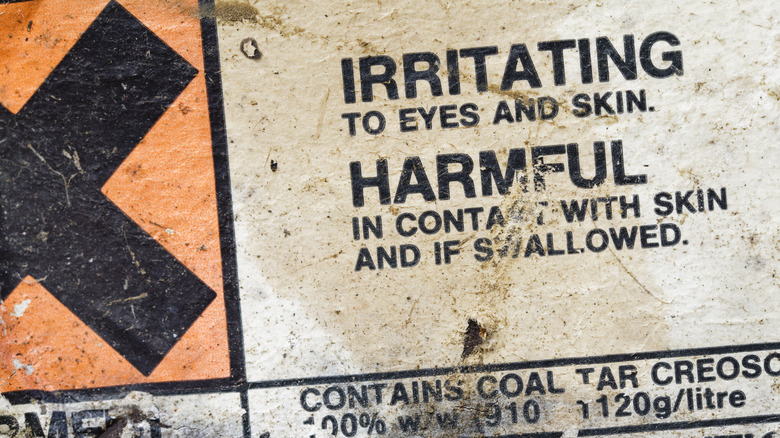Think Twice Before Using This Popular Pesticide In Your Garden
In the endeavor to shift away from synthetic chemical-laden pesticides toward more environmentally friendly options, natural oils have garnered considerable attention as promising solutions. From cinnamon essential oil to peppermint oil, there exists a wide array of natural oils that will keep pests at bay. However, it's important to note that the label "natural" doesn't always mean better.
Neem oil, derived from the seeds of the neem tree, scientifically known as Azadirachta indica, has a rich history spanning thousands of years and a wide range of uses across cultures. Renowned for its potent antibacterial, antiviral, and anti-inflammatory properties, it has been traditionally used as a topical treatment for various skin and hair ailments. Leveraging these same properties, some have found utility for neem oil as a natural insect repellent in gardening. These enthusiasts propose spraying neem oil onto leaves and plants to exploit its insect-repellent properties.
While neem oil has gained popularity for its use as a "sustainable" solution for pest management, ironically, the very compound it contains that disturbs and repels insects could also be causing harm.
Neem oil can be toxic
Azadirachtin, according to a review in Comprehensive Natural Products Chemistry, is an insect growth regulator. Preventing the release of an important growth hormone in bugs halts the development of insect eggs and larvae. This is why it is so effective at keeping pests from eating away and destroying plants. It also demonstrates strong repellent properties so that insects avoid plants that have azadirachtin on them. It is thought that this compound within neem oil is what gives it its insect-repellent properties.
While generally thought to be non-toxic to humans, birds, and other beneficial pollinators, some research is showing otherwise. A study published in the Indian Journal of Entomology showed that neem oil had some negative effects on the development of honeybees, which are vital components of our planet's biodiversity. There has also been a case reported in the Indian Journal of Critical Care Medicine where an adult developed toxic neurological damage after ingesting neem oil. A similar report was made in the Indian Journal of Pediatrics. These findings underscore the unintended negative consequences of neem oil on both humans and our environmental cohabitants.
There is merit in noting that poisoning in humans occurred only after ingesting the oil, but researchers from these cases hypothesize that inhalation of neem oil could have similar effects. If your household includes little children who might get their hands (or tongues) in unwanted places, it may be wise to refrain from using this oil altogether.

